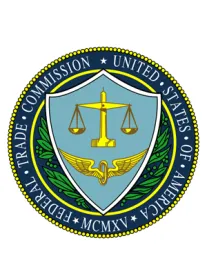In a move characterized as “unprecedented,” on August 13, 2015, the Federal Trade Commission (FTC) issued a Statement of Enforcement Principles describing the principles that guide FTC’s enforcement against “methods of unfair competition” prohibited under Section 5 of the FTC Act. It is not yet clear what prompted the FTC pronouncement or what impact it will have. You can read the press release here.
The FTC Guidance identifies three principles that it uses to in deciding whether to challenge and act or practice as an unfair method of competition:
1. the public policy underlying the antitrust laws, namely, the promotion of consumer welfare;
2. a framework similar to the rule of reason, that is, an act or practice challenged by the Commission must cause, or be likely to cause, harm to competition or the competitive process, taking into account any associated cognizable efficiencies and business justifications; and
3. the Commission is less likely to challenge an act or practice as an unfair method of competition on a standalone basis if enforcement of the Sherman or Clayton Act is sufficient to address the competitive harm arising from the act or practice.
The statement released by the FTC expressly sets forth that “is intended to provide a framework for the Commission’s exercise of its “standalone” Section 5 authority to address acts or practices that are anticompetitive but may not fall within the scope of the Sherman or Clayton Act.”
Although FTC Chairwoman, Edith Ramirez, is reported to have stated that the FTC’s enforcement practices would not change, the Statement of Enforcement Principles seems pretty clear on a few points:
1. The FTC believes that it has authority under Section 5 of the FTC Act to stop “unfair methods of competition in or affecting commerce.” 15 U.S.C. § 45(a)(1).
2. The FTC’s authority is ”standalone.” In other words, not only can the FTC elect to pursue enforcement where other agencies do not, but also, the FTC may pursue enforcement against acts or practices that are not otherwise prohibited by other law.
It is this last part that is potentially problematic. Without further guidance on how the FTC construes exactly what additional acts and practices are outlawed by Section 5 of the FTC Act, but not prohibited under other law, it is very difficult (and possibly impossible) for businesses to adjust their conduct to ensure they are in compliance with applicable law (at least in the view of the FTC).
Now that the FTC Statement of Enforcement Principles is out there, the FTC cannot “un-ring” that bell. The only hope is that the FTC will provide more guidance as to the types of things it believes are intended to be covered by the FTC Act which are not otherwise covered by other federal law. Toward this end, an excerpt from the dissenting statement of Commissioner Maureen Ohlhausen is worth closing with:
“this Section 5 statement does not mention, much less grapple with, the existing case law. While the majority might like to sweep that unfortunat ,e history under the rug, the fact is that the FTC was repeatedly rebuffed by the courts when it last tried to reach well beyond settled principles of antitrust law in asserting its Section 5 authority. Instead, the Commission acts as if it is writing on a clean slate for [unfair methods of competition]. Further, and again in contrast to the consumer protection policy statements, this statement includes no examples of either lawful or unlawful conduct to provide practical guidance on how the Commission will implement this open-ended enforcement policy.”
Brava Ms. Ohlhausen! Brava!




 />i
/>i
